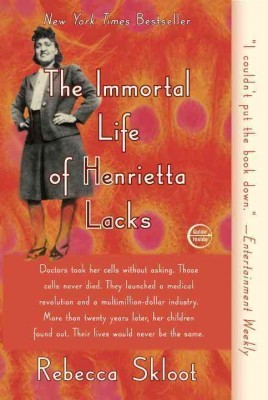From the time I began reading, I was a fiction girl. Period. End of the line. That was it. Learning was for school and, on top of that, non-fiction wasn't fun to read. You couldn't talk me out of it. I was set in my ways, firm in my views.
Then, in sixth grade, we were required to write a book report over a biography. When I heard, my heart sank, but I knew I had to do it. So I sucked it up and and checked out a biography of Anastasia from the school library. I don't remember the title or the author, yet I know that I enjoyed it. It made me think, made me view people a little bit differently. I also garnered a lifelong fascination with Anastasia, with her possible survival and continued lineage.
However, despite my momentary weakness, Anastasia, or perhaps her portrayal, was not enough to convert me to the dark side. It was the last non-fiction book I read for years.
Now, while I disliked reading non-fiction, writing it was almost torture. I seemed to forget how to write a fluid sentence. The prose came out awkward and fake-feeling, as if I was writing more gibberish than when I made things up for fiction. All attempts left me frustrated at my inadequacy. I could not write non-fiction.
Then two things happened simultaneously that have made me reconsider my overall stance on non-fiction.
First, my paternal grandmother asked me to write her mother's, my great-grandmother's, biography. I was horrified at the mere idea and my grandmother could not understand why. She thought that since I wrote fiction, writing a biography would be no big deal. Even after I've turned her down many times, she still continues trying to convince me. She doesn't see the distinct difference between the two genres and the styles in which they are written.
Second, over the summer, I was assigned a non-fiction book report for AP English Language and Composition. Again, I didn't like the project, but I knew it would have to be done. My non-fiction book had to be over 200 pages, school appropriate, AP worthy, and have been published in the last ten years. I browsed the NYT Bestseller's List and chose a book that I hoped would at least be interesting.
THE IMMORTAL LIFE OF HENRIETTA LACKS changed my viewpoint, both on life and non-fiction, forever.
Her name was Henrietta Lacks, but scientists know her as HeLa. She was a poor Southern tobacco farmer who worked the same land as her slave ancestors, yet her cells—taken without her knowledge in 1951—became one of the most important tools in medicine, vital for developing the polio vaccine, cloning, gene mapping, and more. Henrietta's cells have been bought and sold by the billions, yet she remains virtually unknown, and her family can't afford health insurance. This phenomenal New York Times bestseller tells a riveting story of the collision between ethics, race, and medicine; of scientific discovery and faith healing; and of a daughter consumed with questions about the mother she never knew.
You can find my full assessment of this book here. In short, though, this one line wraps up how this book changed my perspective on non-fiction: "I found pleasure both in the story aspect of it and in learning the vast amount of information about HeLa cells provided." Through story, what I love in fiction, I learned and enjoyed learning.
Skloot's writing showed me that non-fiction can be just as full of life, just as intricate, just as fun to read as fiction. That real life, that the wonders of our world and its people, that what really happened is just as good as what we can imagine. It taught me that there are different ways to approach non-fiction writing just as there are different ways to approach fiction writing. Maybe, just maybe, I might attempt writing that biography.
Now when I think about non-fiction, I get excited. Not in the way that I become excited for fiction, but something new. With fiction, I long for the impossible. With non-fiction, I seek only the things of this physical world, this universe. I seek events I did not witness, but that someone else did. I seek a deeper connection between myself and my surroundings through knowledge and facts, things that no one made up, that no one had to. That initial spark I felt from reading about Anastasia has bloomed into a fire.
Non-fiction finally struck me. I am awed.
How do you feel about reading and writing non-fiction? How do you think it differs from fiction? Which is your preference? Would you write someone's biography? Do you have any other good non-fiction books to recommend?


No comments:
Post a Comment